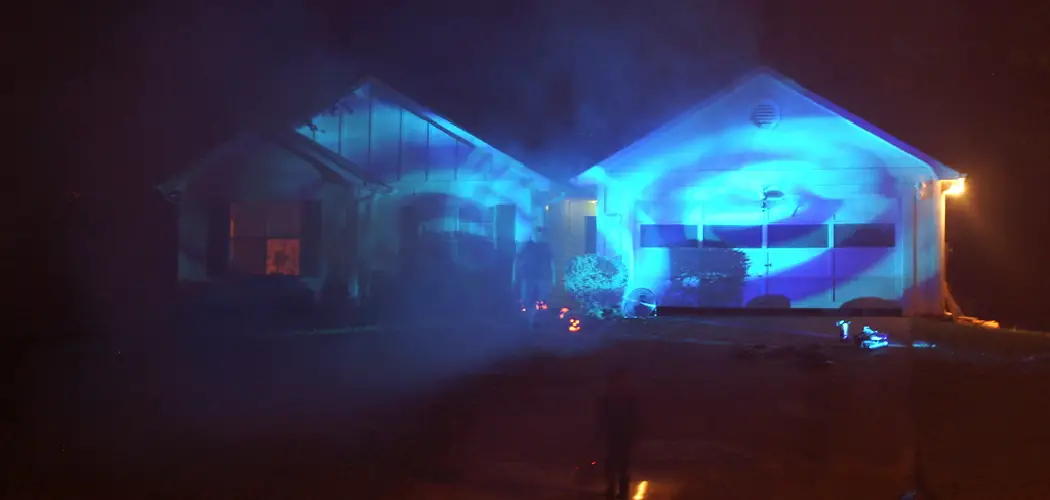In the summer, the warm weather can be unbearable. The sun is shining brightly, and the windows are open, but that also means that your neighbors light shines right into your home. You don’t have to put up with it, though; there are ways to block their light. In this article, we’ll discuss everything on how to block neighbors light. Check out these tips!
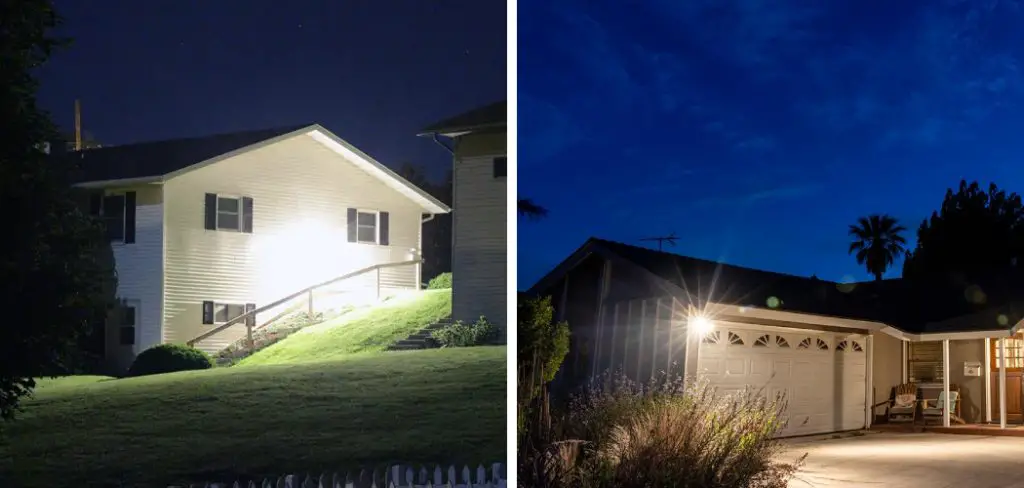
Lights from neighbors can be a huge nuisance, especially if they have powerful security lights. It’s challenging to get a good night’s rest when bright lights shine through your window. You can find yourself tossing and turning, unable to sleep because it feels like the sun is rising in your bedroom.
Summary: Blocking a neighbor’s light from entering your home can help maintain privacy and reduce unwanted light pollution. There are several approaches to achieve this, which can be categorized into two main types: outdoor solutions and indoor solutions. Outdoor solutions focus on creating physical barriers or adjusting the landscape to obstruct the light, while indoor solutions involve modifications to windows or other interior features to prevent light from entering.
For outdoor solutions, consider planting trees or tall shrubs along the property line to create a natural barrier that blocks the light. Alternatively, install a privacy fence or trellis to serve as a physical barrier, which can be further enhanced by climbing plants or vines for added privacy.
If the light source is a streetlight or security light, you can also discuss the issue with your neighbor or local authorities to see if adjustments can be made, such as installing a shield or changing the light’s angle. For indoor solutions, invest in blackout curtains or blinds, which effectively block light from entering the room. Another option is applying window film, which can reduce glare and filter out unwanted light. By combining outdoor and indoor solutions, you can effectively block your neighbor’s light and create a more comfortable living environment.
A Detailed Guide on How to Block Neighbors Light
Step 1: Talk to Your Neighbor
The only thing that will help you block your neighbor’s light is talking to them. It might seem like common sense, but it’s the best way to start this task.
Make sure you talk to your neighbor about their lights in a private and neutral setting. You don’t want to be confrontational, so try to pick a place where neither of you will feel threatened. Make sure you state clearly and calmly how their lights are affecting your sleeping pattern and ability to get work done during the nighttime hours. If they keep turning on more lamps or TVs than average, suggest some ways to minimize disruption, such as closing shades or curtains after certain times of the day or keeping their television volume low when everyone is home from work.
Step 2: Talk to Your Landlord
If your neighbor refuses to change their behavior, talk to the landlord. The property manager might be able to intervene and force them to do something about it. In addition, many properties have a clause in rental agreements that allows the owner of the property and his designated agents to speak directly with tenants on anything that could affect their tenancy, i.e., cleaning up after pets or keeping noise levels reasonable at all times, etc.
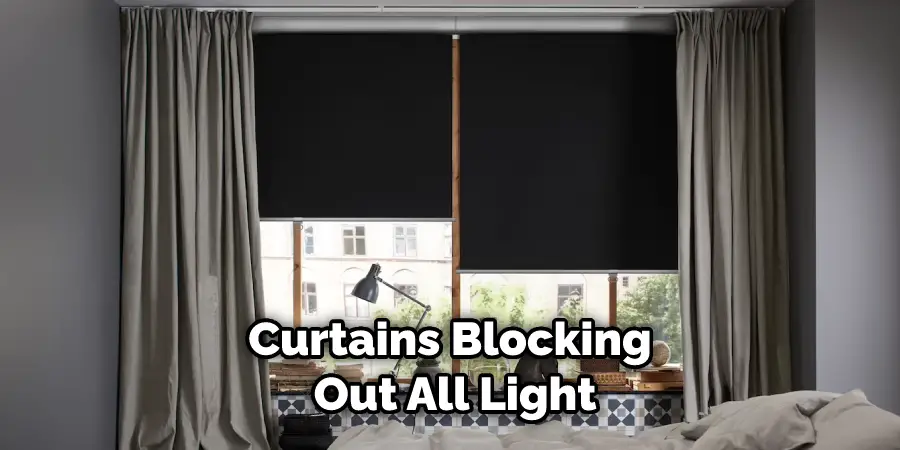
When communicating with them, it is important to remain calm and collected. Be clear about how their light affects your daily life and makes it difficult to live without blackout blinds or curtains blocking out all light coming through your windows.
Step 3: Using Permanent Solutions
If your neighbor still refuses to cooperate, you might have to do something to make them stop being so loud. The easiest way is by buying some blackout shades or curtains. They will come in handy for many years and can be machine-washed or dry cleaned.
The only downside is that these won’t do much if their lights come from multiple directions, i.e., above and below your room. If this is the case, consider installing blackout film on the offending window(s) or invest in closing blinds/curtains, which may require professional installation but allow you total control over where the light goes through, i.e., outwards towards the street or downwards towards the neighbor’s yard.
Step 4: Using Temporary Solutions
If your neighbor’s lights are too bright to be blocked out with blinds or curtains, you might consider using aluminum foil tape or clear packing tape instead. Aluminum foil tape is cheap and effective; however, it only works for a few weeks before becoming loose and falling off.
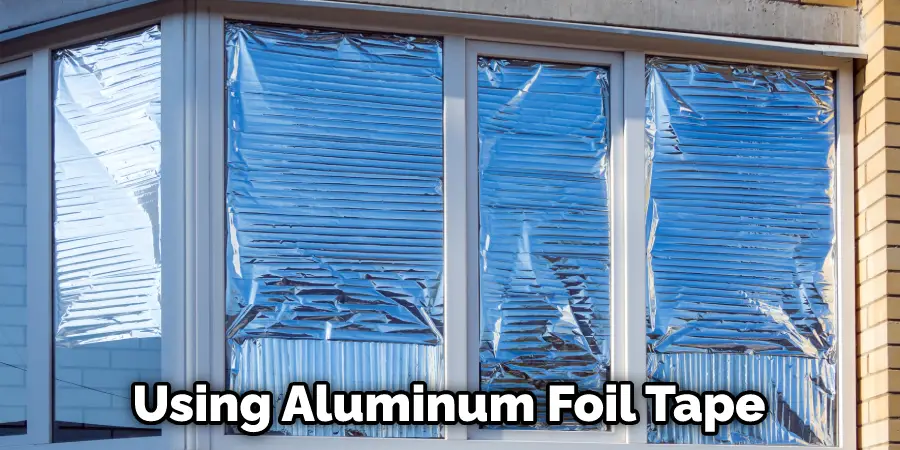
On the other hand, Clear packing tape costs about $5 – $10 per roll but can last up to 3 years without losing its stickiness since it sticks directly onto glass surfaces, not the frame surrounding it as DIY blackout solutions do. You can click here to read more about how to use aluminum-foil tape if this option interests you.
Step 5: Using DIY Solutions
If your neighbor’s lights are too bright and you can’t block them out with shades or blinds, you can try a DIY solution. Cover the window with aluminum foil tape, then place a thick layer of white poster board over the top. It might work depending on how strong the light is and what type of glass is being used.
This will also cost about $5 – $10 per window depending on how many windows you plan to cover, thus making it more expensive than using packing tape or aluminum-foil tape alone for between 3 weeks up to 3 years.
Step 6: Using Personal Actions
If nothing works, use personal actions to get your message across. This works by buying a set of ultra-bright LED solar path lights and placing them on your window sill facing towards the neighbor’s house at night when you expect them to be home.
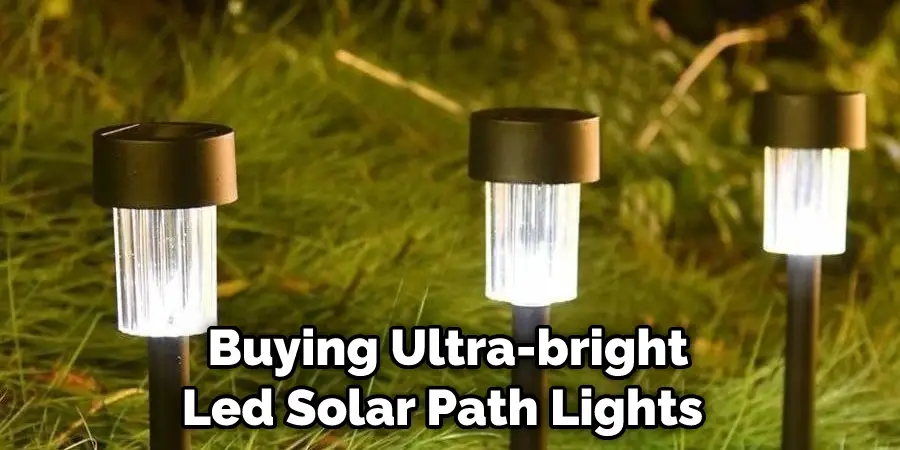
Set up enough solar panels so they’ll stay lit all night long while pointing directly onto their lighted room(s), i.e., if their light comes from above, point the path lights upwards; if their lights come from below or off to the side, point it downwards, etc.
How well this will work for you depends on how strong their lights are combined with how sensitive your neighbors are to bright lighting shining in through their windows at night since some people just aren’t bothered by bright lights shining through their bedroom windows at night.
This will, however, cost between $5 – $10 per set of solar path lights, making it the cheapest solution on the list since it may work for as long as five years before needing replacement depending on your climate and how bright your neighbor’s lights are.
Step 7: Using Public Actions/Laws
If personal actions don’t work, you can use public efforts to get your message across by calling the city code enforcement office and telling them there’s a complaint about too much light shining in through your window(s) at night.
How this works is they will drive by your house one day while it’s light out, look inside your bedroom(s) if possible, determine which room is being affected then go next door to issue them a warning that they are violating local lighting ordinances/laws since too much light at night poses not only an inconvenience but also risks for potential burglars or others who may decide to break into their home.
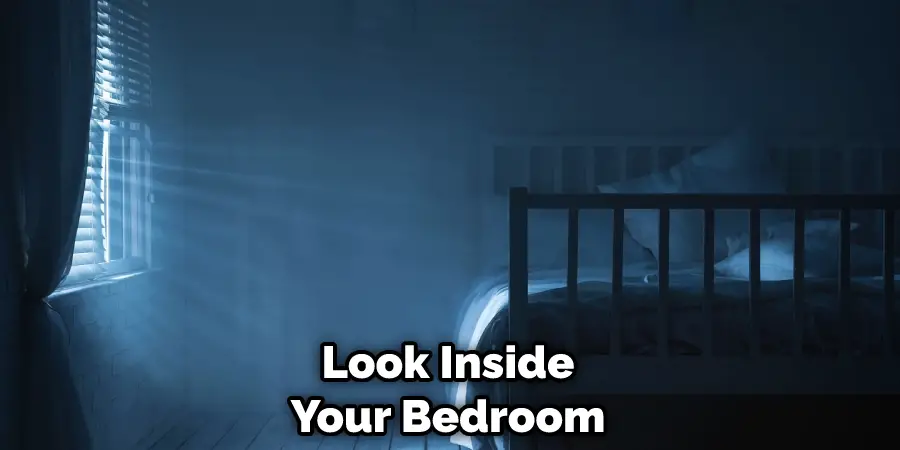
How well this will work for you depends on how serious your neighbors are about their privacy and to what extent they’re willing to stop you from complaining, e.g., reposition the lights or install blackout shutters/blinds to block light from shining into your bedroom(s). How much this will cost you depends on how soon they get warned, whether or not they correct the issue immediately, etc.
Step 8: Moving Houses
If nothing works, you might consider moving houses since it’s extremely difficult to block out very bright lighting coming through windows facing directly onto another house since there is no other building blocking them out. How well this will work for you depends on where you’re planning to move, i.e., if you’re moving next door or further away from your neighbor’s house, etc.
How much this will cost you depends on how much it costs to get a new place of residence and what type of housing is available in the area you plan to move too since some places have more light pollution than others. These steps will help in how to block neighbors light.
What Is Considered Nuisance Lighting
The American Medical Association defines nuisance lighting as any light that is improperly directed into the eyes or too much light for the area where it shines. These lights can be coming from your neighbors home, your home’s exterior lighting, and streetlights. This excess light has been linked to several health problems such as:
- Cancer
- Diabetes
- Sleep disorders
- Mood disorders
The National Institute of Environmental Health Sciences suggests that you conduct a simple test on your home. First, you will need to pick up a dark cloth (i.e., pillowcase) and an alarm clock with light. Next, walk into the space where you would like to block out the light. Turn off all lights in that room, including lamps and overhead ceiling lights.
Next, place it under the dark material with the alarm clock and see if you can see the time enough for this activity (usually about 10 feet away). If not, then there may be too much light coming from another source or sources in that area of your home, which you may want to address.
How Do You Deal With Light Trespass?
If you are experiencing light trespass from a neighbor’s property, there are several ways to deal with the situation.
- Talk to Your Neighbor: Communicate directly with your neighbor about the issue and express your point of view in a respectful manner. Explain why the light trespass is bothering you and try to find a solution together.
- Block or Shield the Light Source: If talking to your neighbor fails, consider blocking or shielding the light source if possible. You can install an opaque screen around the fixture or place something in front of it that will find more light away from your property.
- File a Complaint With Local Authorities: Contact local authorities if the problem persists and a compromise cannot be reached with your neighbor. Make sure to provide all necessary details about the situation so that enforcement officers can properly investigate and resolve it for you.
Frequently Asked Questions
What Can I Do if My Neighbors Light Is Too Bright?
If you are unhappy with the brightness of your neighbors’ light, there is not much that you can do about it. Municipal code generally only governs what type and wattage of lamps can be installed on a property, and there is no legal recourse if your neighbors violate this code. In most cases, complaints will result in a disagreement between the two parties rather than any tangible change.
If you feel that the brightness level emanating from your neighbor’s home is overwhelming or inappropriate, consider speaking to them directly about their concerns. It may be worth noting that state laws vary widely on this topic; some states allow for residents to file lawsuits against those who violate local zoning ordinances while others have more lenient standards.
Can Neighbours Complain About Outside Lights?
Neighbors cannot legally complain about outside lights unless the light is causing a problem with their own home or property. For example, if your neighbor’s outdoor light is shining into your window and it’s making it difficult to see inside, then you may have a legal case on your hands. However, putting up brighter bulbs or turning off the light altogether would likely be a more effective solution than complaining to your neighbor.
Why Do My Neighbors Have Blue Lights?
Blue lights are often used in law enforcement and the military, as they help to be visible at night. They also have the ability to pass through most objects, which makes them useful for tracking people or vehicles. However, blue light can also have negative effects on the human body. It can cause eye strain, headaches, and even insomnia.
While blue lights are commonly associated with police officers and soldiers, they can also be seen hanging from streetlights and other public utilities around towns and cities during nighttime hours.
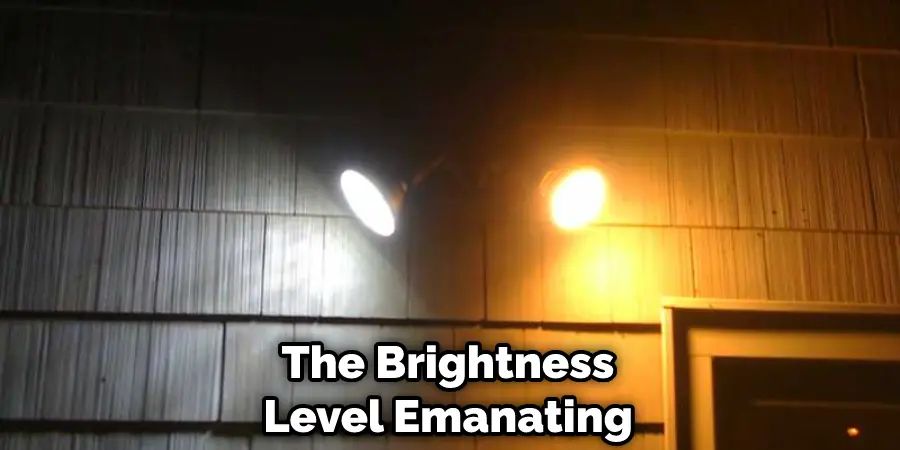
Conclusion
If you’re having trouble getting to sleep due to light pollution, you can do a few things. First, try using blackout curtains or shades to block the light. You could also install window film that blocks light or use an eye mask to cover your eyes.
If these solutions don’t work for you, consider talking to your neighbors about how they can help reduce the amount of light shining into your windows at night. By working together, we can all get a better night’s sleep and be more productive during the day! We hope you find this article on how to block neighbors light helpful.
